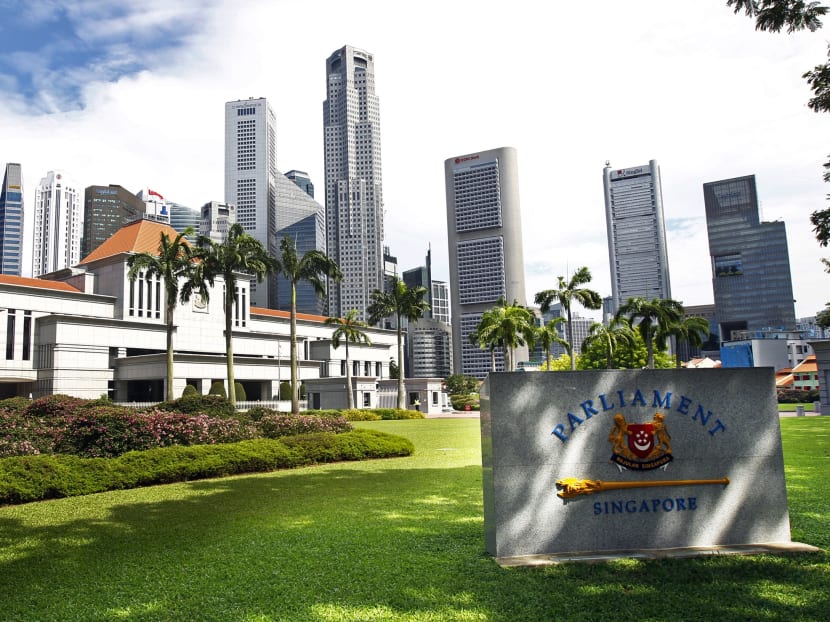PM Lee to voters: Judge candidates on competence
SINGAPORE — Calling out opposition parties for sticking to their strategy of wanting only to act as a check on the People’s Action Party government instead of stepping forward to provide a vision to govern Singapore better and mount a challenge for the reins of leadership, Prime Minister Lee Hsien Loong said that in today’s environment, there is no shortage of alternative voices outside Parliament.
SINGAPORE — Calling out opposition parties for sticking to their strategy of wanting only to act as a check on the People’s Action Party government instead of stepping forward to provide a vision to govern Singapore better and mount a challenge for the reins of leadership, Prime Minister Lee Hsien Loong said that in today’s environment, there is no shortage of alternative voices outside Parliament.
Calling on Singaporeans to vote for the best person to represent them, Mr Lee said there is no possibility of a Parliament that is “completely PAP”. Citing the schemes for Nominated as well as Non-Constituency Members of Parliament, he added that there is also an “infinite number” of voices outside the House - a reference to the mushrooming new media scene.
Ultimately, he said, elections should come down to the calibre and quality of candidates. After all, he added, a person who is not competent is not going to be a check on the Government. For candidates who are seeking re-election, voters should look at how they manage their constituencies, which Mr Lee described as a “small test of readiness and competence”.
Responding to questions on how he thought the political system would evolve, Mr Lee said that Singapore was in an unusual situation: There is clear consensus among citizens that the PAP remains the governing party, but there is also a desire for alternative views. He added: “(But) if you ask the opposition parties, whether it is the Workers’ Party (WP) or the Singapore Democratic Party, nobody says vote for me I will form the government, I will be the Prime Minister, I will run this place better.”
This, he said, meant that it is “very important for the government to maintain support and to be able to carry the consensus of the population over the long term”.
He added, however: “Will (the present situation) remain exactly (the way it is) today? I do not think so. How will it change? I cannot say – it depends on voters, it depends on how the new MPs and ministers (whom) we bring in bond with the people. It depends on what situations you run into.”
“If you run into turbulent situations, I think people would be very worried about the dangers and there will be a flight to safety. If you are in a peaceful, prosperous environment, people say - well, this is the way the world is, why do you need the government? We can prosper without the government.”
Mr Lee noted that political parties in bigger countries have a more stable support base that may tilt from time to time but will not topple over. The PAP has no such luxury because of the Republic’s “flat” political landscape, he said.
In the United States, for example, the Democrats enjoy strong support from the coastal areas while the central states, with a few exceptions, are behind the Republicans, Mr Lee said. In the United Kingdom, the Tories enjoy strong support in the south-east rich areas while the Labour Party has a base of supporters in the Midlands. But he noted that in Scotland, the support base has shifted from the Labour Party to the Scottish nationalists.
He said: “There is no certainty that what we have now is going to continue and each election is a very serious contest for who is going to form the next government.” He added: “That is not a comfortable position to be in but that is the way our society is and we have to know that.”
That being the case, he exhorted voters: “Vote for the best person who can represent you. If you do not… then the person you vote for may end up representing you, and God help you.”
He added: “If you are voting for somebody and you think he is going to be a good check, make sure that person is up to the standard which you are expecting. A person who sits in Parliament and is not competent, is not going to be a check on the government. A person who can be in Parliament… (can) debate and intelligently questions what is the Government doing and why are you doing this and not doing that - that is what you need when you are talking about checks and balances.”
“You have to look at the quality of the people, and see how they are able to operate within their own constituencies… that is a small test of readiness and competence. How you run your town council, whether your constituencies are well-managed or not, there is a reason why we put the town councils under the MPs – because we want it to have this test.”
Mr Lee did not make reference to any political party, but in recent months, PAP leaders have turned up the heat on the WP-run Aljunied-Hougang-Punggol East Town Council, particularly in the management of arrears.
The Prime Minister also cited the example of France, where national politicians often have local appointments, as another country that shares the “test of readiness” approach. “(In France), you may be a mayor in your own city or province and at the same time you are a minister... That shows that you are capable of doing something before we go and put people’s lives in your hands.”









